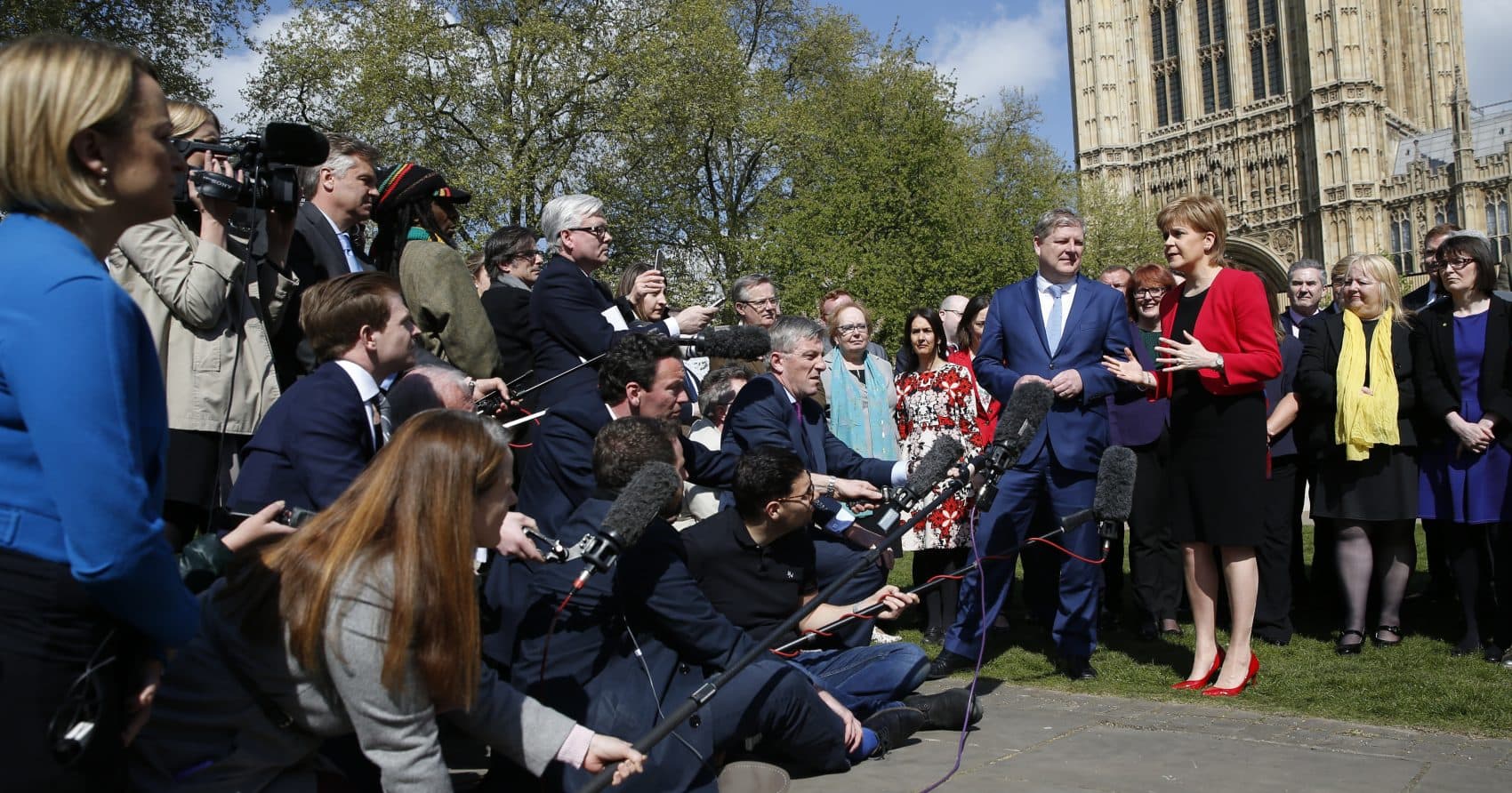Advertisement
Commentary
What To Watch As The Brexit Games Begin

With the triggering of Brexit — the United Kingdom’s referendum vote to leave the European Union — the British are currently experiencing a feeling familiar to many American sports fans: "pre-season optimism." Former world-beaters, they have recently fallen on hard times.
This year promises to be different; under new management and with the prospect of performing in a brand new stadium after 2019, the fans (52 percent of them at least) are confident that this season will be the one.
As the real negotiating game begins, there are three things to watch that will shape the fate of the United Kingdom.
European Union Shakeups
The Brexit clock was triggered by Prime Minister May on March 29, meaning that it is now ticking down to March 29, 2019, when an agreement must be signed between the U.K. and the European Union on the terms of their new relationship. However, this tight timeline is deceptive. On the far end, at least six months are required from the end of negotiations to the official implementation of an agreement, during which at least 20 of the remaining 27 member states must approve the deal.
The stakes are high and they have bet the farm on a successful outcome.
In a strategic move, Prime Minister May performed a U-turn on previous promises and called an early general election on June 8. With a slim parliamentary majority before what is destined to be a bruising negotiation season, May decided to take advantage of a weak Labour opposition to increase the Conservative’s control of Westminster. All national votes are risky (and the British certainly learned this in June last year when most polls predicted a Remain win), but recent polls suggest a strong chance of Conservative.
Across the English Channel, two major players in EU decisions, France and Germany, will also undergo national elections this year. France will elect its President in May, and should they choose National Front candidate Marine Le Pen, a supporter of Brexit and of a similar course of action for France, Europe may have a much more disastrous internal split to deal with than the departure of the United Kingdom. This would certainly jeopardize the course of Brexit negotiations even before they begin.
In Germany, elections are due in September, just 12 months before a final Brexit deal is expected to wrap up. Should Merkel win re-election, uncertainty may be limited. But if the main opposition candidate Martin Schultz wins, he will certainly take a tougher line on the U.K., with unpredictable consequences on the timeline. Furthermore, post-election coalition horse-trading could create further delays for Brexit negotiations; after the 2013 German election, no government was formed for several months.
For the Brits, the prospect of even reaching a deal may depend on the whims of the French and German electoral systems. If these delays prevent a final deal being reached in time, the British government faces the risk of damaging trade barriers returning for the first time in a generation. The stakes are high and they have bet the farm on a successful outcome.
Home Team Divisions
Neither Scotland nor Northern Ireland voted for Brexit, but they will be carried on the Brexit express as part of the U.K. anyway. In Scotland, the national parliament has officially requested permission from the U.K. government to hold another referendum on independence in late 2018 or early 2019. This has not been well received by the London government, which wants to avoid an internal constitutional crisis at a delicate time. The Scottish government will certainly be a thistle in London’s side until this request is granted.
Neither Scotland nor Northern Ireland voted for Brexit, but they will be carried on the Brexit express as part of the U.K. anyway.
In Northern Ireland, recent elections created parliamentary stalemate, where the only clear result was a resounding rejection of Brexit’s potentially dramatic impact on the border with the Republic of Ireland and on the peace process. If no consensus on a new coalition government can be reached, London may be forced to repatriate power, creating instability in Ireland. Adding to the complexity, parties in Northern Ireland will now be forced to commence a new national election campaign while still in negotiations to form their local government.
Brexit Means More Than Just Brexit
Prime Minister May has often repeated her mantra, "Brexit means Brexit," but its impact will reach into many more aspects of British life than this limited projection suggests. With EU laws governing issues like health and safety, consumer rights and transport in Britain for decades, the complexity of reversing tens of thousands of pieces of legislation and creating new government bodies for immigration and trade negotiations is huge. If the U.K. had nothing else on its plate and a fully staffed civil service, this might be realistic but neither of these is the case. The depleted civil service still has to run a complex country, regardless of Brexit’s additional demands on resources.
With no British government having negotiated a trade deal by itself in 44 years, professional experience is thin on the ground, hardly optimal when haggling with the likes of the United States, China and India concurrently. It is no wonder they are offering to pay their chief negotiators more than the prime minister, for a job that cannot officially begin until Brexit is agreed.
In the end, the promised two-year Brexit negotiation season will probably consist of just one year of live action with the risk of delays from internal and external disputes. With headstrong leaders on both sides and a long history of conflict, it promises to be compelling viewing.
